AFF Championship
The ASEAN Football Federation Championship (less formally known as the AFF Championship or AFF Cup), currently known as the AFF Mitsubishi Electric Cup for sponsorship reasons, is the primary association football tournament organized by the ASEAN Football Federation (AFF) for men's national teams in Southeast Asia.
 Symbol used since the 2018 edition | |
| Organising body | AFF |
|---|---|
| Founded | 1996 |
| Region | Southeast Asia |
| Number of teams | 10 (finals) 12 (eligible to enter qualification) |
| Current champions | |
| Most successful team(s) | |
| Website | affmitsubishielectriccup.com |
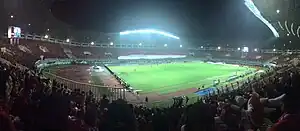 |
| Tournaments |
|---|
A biennial international association football competition, it is contested by the men's national teams of the AFF to determine the sub-continental champion of Southeast Asia. The competition has been held every two years since 1996 scheduled to be in the even-numbered year, except for 2007, and 2020 (which was postponed to 2021 due to the COVID-19 pandemic). It was felt that a close co-operation at the football level would improve the quality of football across the region and would make it more competitive at the Asian and world level meets.
The AFF Championship title have been won by four national teams; Thailand have won seven titles, Singapore has four titles, Vietnam has two titles and Malaysia with one title. To date, Thailand and Singapore are the only teams in history to have won consecutive titles; Thailand in 2000 and 2002, 2014 and 2016 and also 2020 and 2022, and Singapore in 2004 and 2007. It is one of the most watched football tournaments in the region. The AFF Championship is also recognized as an 'A' international tournament by FIFA with FIFA ranking points being awarded since 1996.[1]
Since 2018, the championship winners would compete in the following AFF–EAFF Champions Trophy, against the winner of the EAFF E-1 Football Championship, the champions of East Asia, to determine the champions of East and Southeast Asia. Although having joined the AFF on 27 August 2013, Australia has not been allowed by the AFF to attend the AFF Championship.[2]
History
The first ASEAN Championship took place in 1996 with the six founding members of ASEAN Federation competing with four nations being invited that came in that region. The final saw Thailand become the first champions of ASEAN as they defeated Malaysia 1–0 in Singapore.[3] The top four nations automatically qualified through to the finals in the following edition. This meant the other six nations had to compete in qualifying for the remaining four spots. Myanmar, Singapore, Laos and Philippines all made it through to the main tournament. No country have ever won the AFF Championship title three times in a row. Singapore (2004 and 2007) and Thailand (2000 and 2002 and again in 2014 and 2016) have won twice in a row.
Most watched football tournaments in Southeast Asia.
The recent 2022 edition, saw the tournament return to a full home-and-away format, a decentralised approach first introduced for the 2018 edition. Instead of hosting the tournament entirely in one or two selected countries, each team plays two Group Stage games at home and two away matches, with the intention of allowing more supporters to attend the matches and back their national team on home soil, which in turn drove greater fan engagement for the event. Broadcast numbers of the 2020 edition has shown that the event is one of the most followed football tournament in several key in the Southeast Asian markets compared to global football competitions like the UEFA Euro 2020 and the 2018 FIFA World Cup. The 2020 edition brought in a TV audience of 266 million viewers, a 28% increase compared to 2018. The recent 2022 edition surpasses its own previous records to establish a new benchmark for TV viewership – the AFF Mitsubishi Electric Cup 2022 garnered an unprecedented audience of 305 million TV viewers, a 15% increase from 2020, further solidifying its position as one of the most-watched football tournaments in Southeast Asia.
Organisation
Sports marketing, media and event management firm, Lagardère Sports has been involved in the tournament since the inaugural edition in 1996.
Title sponsorship
Founded as the Tiger Cup after Singapore-based Asia Pacific Breweries brand Tiger Beer, it sponsored the competition from the competition's inauguration in 1996 until the 2004 edition. After Asia Pacific Breweries withdrew as title sponsor, the competition was known simply as the AFF Championship for the 2007 edition. In 2008, Japanese auto-company Suzuki bought the naming rights for the competition, and the competition was named the AFF Suzuki Cup until the 2020 edition.[4] On 23 May 2022, AFF announced a new title sponsorship deal with Japanese company Mitsubishi Electric and the competition was named the AFF Mitsubishi Electric Cup starting in the 2022 edition.[5]
| Period | Sponsor | Name |
|---|---|---|
| 1996 to 2004 | Tiger Beer | Tiger Cup |
| 2007 | No title sponsor | AFF Championship |
| 2008 to 2020 | Suzuki | AFF Suzuki Cup |
| 2022 to present | Mitsubishi Electric | AFF Mitsubishi Electric Cup |
Format
From 2004, the knockout stage is played over two legs on a home-and-away format. Since the 2007 edition, there was no third place match; semi-finalists are listed in alphabetical order. The away goals rule has been applied for knockout stage since the 2010 edition.[lower-alpha 1]
Starting with the 2018 edition, a new format was applied. The nine highest ranked teams qualified automatically while the 10th and 11th ranked teams playing in a two-legged qualifier. The 10 teams were split in two groups of five and play a round robin system, with each team playing two home and two away fixtures. A draw was made to determine where the teams play while the format of the knockout round remained unchanged.[6]
Results
Performances by country
| Team | Champions | Runners-up |
|---|---|---|
| 7 (1996, 2000, 2002, 2014, 2016, 2020, 2022) | 3 (2007, 2008, 2012) | |
| 4 (1998, 2004, 2007, 2012) | – | |
| 2 (2008, 2018) | 2 (1998, 2022) | |
| 1 (2010) | 3 (1996, 2014, 2018) | |
| – | 6 (2000, 2002, 2004, 2010, 2016, 2020) | |
| Total | 14 | 14 |
Participating nations
| Team | 1996 (10) |
1998 (8) |
2000 (9) |
2002 (9) |
2004 (10) |
2007 (8) |
2008 (8) |
2010 (8) |
2012 (8) |
2014 (8) |
2016 (8) |
2018 (10) |
2020 (10) |
2022 (10) |
Total |
|---|---|---|---|---|---|---|---|---|---|---|---|---|---|---|---|
| Not an AFF member | × | × | × | × | × | 0 | |||||||||
| GS | • | × | × | × | • | • | × | • | • | • | • | × | GS | 2 | |
| GS | • | GS | GS | GS | • | GS | • | • | • | GS | GS | GS | GS | 9 | |
| 4th | 3rd | 2nd | 2nd | 2nd | GS | SF | 2nd | GS | GS | 2nd | GS | 2nd | SF | 14 | |
| GS | GS | GS | GS | GS | GS | GS | GS | GS | GS | • | GS | GS | GS | 13 | |
| 2nd | GS | 3rd | 4th | 3rd | SF | GS | 1st | SF | 2nd | GS | 2nd | GS | SF | 14 | |
| GS | GS | GS | GS | 4th | GS | GS | GS | GS | GS | SF | GS | GS | GS | 14 | |
| GS | GS | GS | GS | GS | GS | • | SF | SF | SF | GS | SF | GS | GS | 13 | |
| GS | 1st | GS | GS | 1st | 1st | SF | GS | 1st | GS | GS | GS | SF | GS | 14 | |
| 1st | 4th | 1st | 1st | GS | 2nd | 2nd | GS | 2nd | 1st | 1st | SF | 1st | 1st | 14 | |
| Part of Indonesia | × | GS | • | • | • | • | • | • | GS | GS | • | 3 | |||
| 3rd | 2nd | 4th | 3rd | GS | SF | 1st | SF | GS | SF | SF | 1st | SF | 2nd | 14 | |
- Legend
|
|
Notes
Awards
Winning coaches
| Year | Winning coaches | National team |
|---|---|---|
| 1996 | ||
| 1998 | ||
| 2000 | ||
| 2002 | ||
| 2004 | ||
| 2007 | ||
| 2008 | ||
| 2010 | ||
| 2012 | ||
| 2014 | ||
| 2016 | ||
| 2018 | ||
| 2020 | ||
| 2022 |
- Notes
- being the only person to win the competition as a player (1996, 2000, 2002) then coach (2014, 2016).
All-time ranking table
- As of the 2022 edition
| Rank | Team | Part | Pld | W | D | L | GF | GA | GD | Pts | Best finish |
|---|---|---|---|---|---|---|---|---|---|---|---|
| 1 | 14 | 86 | 54 | 20 | 12 | 188 | 96 | +92 | 182 | Champions (1996, 2000, 2002, 2014, 2016, 2020, 2022) | |
| 2 | 14 | 66 | 33 | 16 | 17 | 118 | 68 | +50 | 115 | Champions (1998, 2004, 2007, 2012) | |
| 3 | 14 | 79 | 41 | 22 | 16 | 161 | 77 | +84 | 145 | Champions (2008, 2018) | |
| 4 | 14 | 75 | 34 | 15 | 26 | 131 | 88 | +43 | 117 | Champions (2010) | |
| 5 | 14 | 76 | 38 | 17 | 21 | 189 | 129 | +60 | 131 | Runners-up (2000, 2002, 2004, 2010, 2016, 2020) | |
| 6 | 13 | 48 | 11 | 4 | 33 | 55 | 60 | –5 | 37 | Semi-finalists (2010, 2012, 2014, 2018) | |
| 7 | 14 | 50 | 15 | 8 | 27 | 62 | 110 | –48 | 53 | Semi-finalists (2004, 2016) | |
| 8 | 13 | 45 | 2 | 6 | 37 | 32 | 170 | –138 | 12 | Group stage (13 times) | |
| 9 | 9 | 34 | 6 | 0 | 28 | 39 | 110 | –71 | 18 | Group stage (9 times) | |
| 10 | 3 | 12 | 0 | 0 | 12 | 6 | 50 | –44 | 0 | Group stage (2004, 2018, 2020) | |
| 11 | 2 | 8 | 1 | 0 | 7 | 3 | 37 | –34 | 3 | Group stage (1996, 2022) | |
Records and statistics
All time top goalscorers
- As of 2022 final
| Rank | Player | Goals |
|---|---|---|
| 1 | 25 | |
| 2 | 17 | |
| 3 | 15 | |
| 5 | 14 | |
| 6 | 13 | |
| 8 | 12 | |
| 10 | 11 | |
| 11 | 10 |
- Bold denotes players still playing international football
Other statistics
- Indonesia (2004), Thailand (2008) and Vietnam (2022) did not concede a single goal in their group stage campaigns in the indicated years
- The 2002 AFF Championship Final is still the only final to have been settled on penalties
Biggest wins
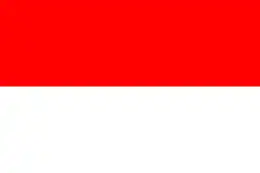 Indonesia 13–1
Indonesia 13–1  Philippines on 23 December 2002 at the Gelora Bung Karno Stadium in Jakarta)
Philippines on 23 December 2002 at the Gelora Bung Karno Stadium in Jakarta)
Most successful coach
- Radojko Avramović – 3 (
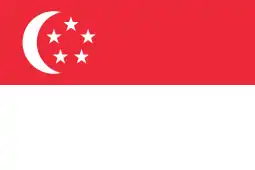 Singapore, 2004, 2007 and 2012)
Singapore, 2004, 2007 and 2012)
Most successful player
- Sarach Yooyen – 4 (
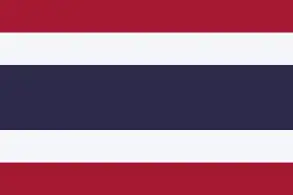 Thailand,2014, 2016, 2020, 2022)
Thailand,2014, 2016, 2020, 2022)
Most goals scored in a single tournament
- Noh Alam Shah – 10 (
 Singapore, 2007)
Singapore, 2007)
Most goals scored in a match
- Noh Alam Shah – 7 (for
 Singapore vs
Singapore vs 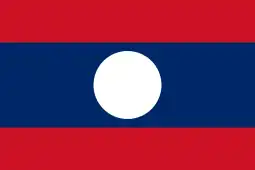 Laos, 2007)
Laos, 2007)
Most tournaments scored in
- Teerasil Dangda – 4 (
 Thailand, 2008, 2012, 2016 and 2020)
Thailand, 2008, 2012, 2016 and 2020)
First ever hat-trick
- K. Sanbagamaran – 53 minutes (for
 Malaysia vs
Malaysia vs  Philippines on 4 September 1996)
Philippines on 4 September 1996)
Fastest hat-trick
- Sarayuth Chaikamdee – 4 minutes (for
 Thailand vs
Thailand vs 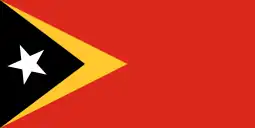 Timor-Leste on 12 December 2004)
Timor-Leste on 12 December 2004)
Youngest Player
- Zenivio – 16 years 7 months 13 days old (for
 Timor-Leste vs
Timor-Leste vs  Thailand on 5 December 2021)
Thailand on 5 December 2021)
Youngest goal scorers
- Marselino Ferdinan – 18 years 03 months 24 days (for
 Indonesia vs
Indonesia vs  Philippines on 2 January 2023)
Philippines on 2 January 2023)
Oldest Player
- Hassan Sunny – 38 years 9 months 1 day old (for
 Singapore vs
Singapore vs  Malaysia on 3 January 2023)
Malaysia on 3 January 2023)
Oldest goal scorers
- Aleksandar Đurić – 42 years 3 months 7 day old (for
 Singapore vs
Singapore vs  Malaysia on 25 November 2012)
Malaysia on 25 November 2012)
See also
Notes
- Except the 2020 edition due to all matches being hosted in centralized venue, Singapore.
- Postponed to 2021 due to the COVID-19 pandemic.
- The 2020 AFF Championship was hosted in a centralized venue due to the ongoing COVID-19 pandemic in Southeast Asia. On 28 September 2021, it was announced that Singapore would host the tournament.[7]
- Due to non-compliance with conditions set by the World Anti-Doping Agency (WADA), Thailand and Indonesia were not allowed to be represented by their national flags.[8][9] The sanctions took effect in October 2021.[10] Thailand is represented by its national team logo while Indonesia is represented by its coat of arms.
References
- Isu Mata FIFA Ranking Dalam Sejarah Kejohanan Piala AFF (in Malay) - Football Tribe, 13 November 2016.
- Bossi, Dominic (31 January 2019). "Socceroos seeking entrance into 2020 Suzuki Cup". The Sydney Morning Herald. Archived from the original on 31 January 2019. Retrieved 27 January 2019.
- "About AFF". aseanfootball.org. Archived from the original on 19 May 2020. Retrieved 15 April 2019.
- "Global News News.2008 | Global Suzuki". www.globalsuzuki.com. Archived from the original on 4 October 2022. Retrieved 4 October 2022.
- "AFF Announces Mitsubishi Electric As The New Title Sponsor Of AFF Mitsubishi Electric Cup 2022". www.affmitsubishielectriccup.com. Archived from the original on 10 June 2022. Retrieved 24 May 2022.
- "New format for AFF Suzuki Cup 2018 – AFF – The Official Website Of The Asean Football Federation". www.aseanfootball.org. Archived from the original on 30 December 2022. Retrieved 7 March 2023.
- Noronha, Anselm (28 September 2021). "Singapore to host AFF Suzuki Cup 2020: Teams, how to watch & more | Goal.com". Goal.com. Archived from the original on 3 May 2022. Retrieved 29 September 2021.
- "Thailand loses right to host tournaments". Bangkok Post. Bangkok Post Public Co. Ltd. Archived from the original on 2 April 2023. Retrieved 25 November 2021.
The country has also been denied the right to display its national flag at any such events (international football events).
- "Chairman Of PSSI: Regarding The Flag At AFF 2020, We Will Follow Whatever The Decision Is". VOI – Waktunya Merevolusi Pemberitaan. 24 November 2021. Archived from the original on 22 April 2022. Retrieved 25 November 2021.
- "WADA confirms non-compliance of five Anti-Doping Organizations (7 October 2021)". World Anti-Doping Agency. 7 October 2021. Archived from the original on 28 December 2021. Retrieved 4 December 2021.

.svg.png.webp)
